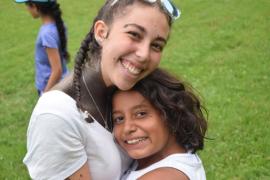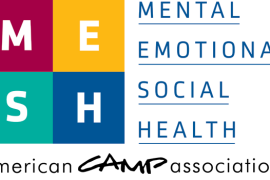As the Healthy Camp Education and Monitoring Program (HCEMP) committee studies MESH and its implications, I was interested to see some foundational work in this area. In reading, I learned about the Adverse Childhood Experiences (ACE) study done by the Centers for Disease Control (CDC) and Kaiser Permanente from 1995-1997. They studied 17,000 participants and found four unique results:
- Nearly two-thirds of the 17,000 children had experienced at least one ACE
- There is a definitive link between ACE and adult disease, mental illness, and violence
- Children who experienced 4 or more ACEs were more likely to become depressed, twice as likely to smoke, and 12 times more likely to attempt suicide.
- ACEs contribute to most major chronic health, mental health, and social health issues.
So why do ACEs cause damage? The researchers say “long term toxic stress” - like living with an abusive parent. This stress floods the brain with stress hormones causing abnormal responses to what we would see as “normal” situations. These children act out, can’t focus, can’t learn, and cope by drinking/overeating/smoking/doing drugs. To children, these are solutions to their problems, not problems themselves. Nicotine reduces stress, food soothes, and some drugs are anti-depressants.
Stevens (2015) reports that building resilience in these children lies in creating communities that prevent adversity and stop traumatizing already traumatized individuals. What do we do at camp? Just this – create daily resilience building opportunities. The knowledge that camp professionals have can change the “blame and shame” of these children to an experience of understanding, nurturing, and healing. I am excited that we are pursuing building blocks and new ideas to work with children (most who have experienced an ACE). By instilling new MESH’ages in camp communities, we can hopefully marginalize the “toxic stress” and create an environment of growth and self-awareness.
Center for Disease Control (2015). Injury Prevention and Control: Division of Violence Prevention (ACE Study). Found at http://www.cdc.gov/violenceprevention/acestudy.
Stevens, Jane. (2015) Trauma-informed Groups Serve Clients Better. Youth Today 24(6), 5.
The views and opinions expressed by contributors are their own and do not necessarily reflect the views of the American Camp Association or ACA employees.




